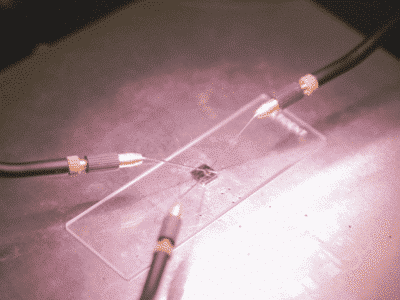
 Montreal-based AEPONYX Inc. has been selected by Sustainable Development Technology Canada (SDTC) to receive a $1.9 million non-refundable grant to develop and commercialize its patented platform, which combines planar Micro-Electro-Mechanical-Systems (MEMS) and Silicon Photonics, providing fast, affordable and small optical switches for tunable transceivers and optical circuit switches used in massive data centres and for telecommunications applications.
Montreal-based AEPONYX Inc. has been selected by Sustainable Development Technology Canada (SDTC) to receive a $1.9 million non-refundable grant to develop and commercialize its patented platform, which combines planar Micro-Electro-Mechanical-Systems (MEMS) and Silicon Photonics, providing fast, affordable and small optical switches for tunable transceivers and optical circuit switches used in massive data centres and for telecommunications applications.
With demand for mobile network connectivity increasing, all powered by data centres and telecommunications infrastructure, the need to increase capacity through the use of optical switching circuits and tunable transceivers creates an opportunity for companies capable of supplying the needs of the next generation of optical communications.
AEPONYX’s optical switch consumes less than one-tenth of the power used by the incumbent electrical switch now in use for data centres and for telecommunications applications, leading to reduced data centre and cell network electricity consumption and latency, along with a corresponding reduction of greenhouse gas emissions.
“Use of optical switching can significantly improve the energy efficiency of telecommunication and data center networks while increasing the network capacity and lowering latency,” says AEPONYX CEO Philippe Babin. “Our chips are so small that optical switching functionality can be embedded in disaggregated switching systems as well as in optical transceiver subassemblies, therefore addressing two multi-billion fast growing markets. We are grateful to SDTC for their continued support in enabling us to bring this disruptive technology to market.”
The project, carried out by AEPONYX and its manufacturing partners, is budgeted at approximately $5.7 million, and will involve designing, testing and fabricating optical circuit switching (OCS) modules that can be packaged with optical amplifiers and custom-control circuitry.
The low-cost optical micro optical switch chip developed by AEPONYX is one-tenth the cost of legacy optical switches, while also being able to improve switching time by a factor of 100.
Consortium members Mellanox, Ericsson, Fiber Mountain, and USIS will test the chip to demonstrate optical performance required for data centre and cellular-base-station applications, as well as for lower power consumption cost than current electrical switches.
“Sustainable Development Technology Canada is very proud to support the commercialization of AEPONYX’s innovative technology,” said Leah Lawrence, SDTC President and Chief Executive Officer. “This project will create green jobs for the local economy, increase efficiency in the sector and provide economic and environmental benefits for all Canadians.”
The AEPONYX platform is suitable for a broad range of applications in the telecom and datacom space, including bidirectional tunable transceivers, optical switches, wavelength selective switches, ROADMs, among other things.
In May, the research partnership between AEPONYX and UQAM won the 2016 ADRIQ award (Association for the Development of Research and Innovation in Quebec), for its work on developing smaller, lower power consumption and higher performing optical chips through a combination of silicon photonics and micromechanical systems.
Earlier this month, AEPONYX was the first Canadian company accepted into Silicon Catalyst, the world’s only startup incubator focused exclusively on semiconductor solutions, based in Silicon Valley.
AEPONYX has also just joined the autumn cohort of Montreal’s four-month Ecofuel Accelerator, which brings together five early-stage cleantech companies.
Leave a Reply
You must be logged in to post a comment.



 Share
Share Tweet
Tweet Share
Share




Comment